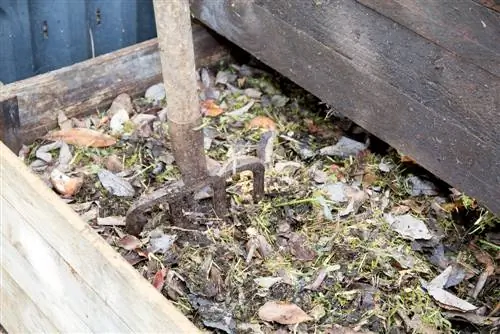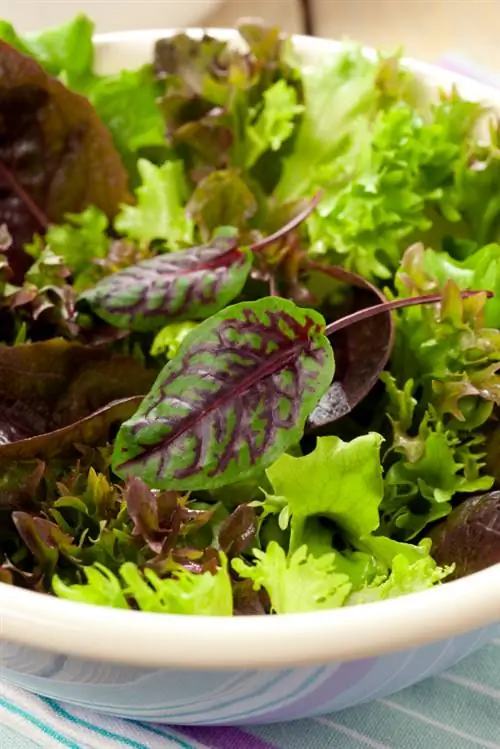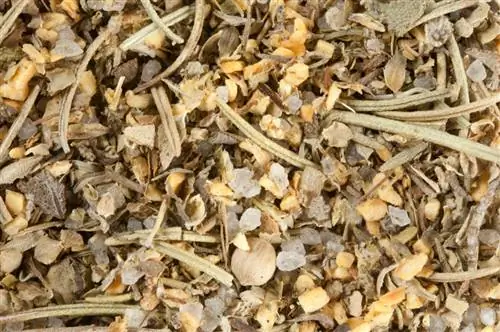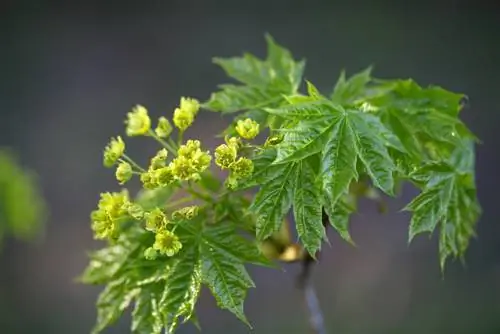- Author admin leonars@hobbygardeners.com.
- Public 2023-12-25 17:45.
- Last modified 2025-01-23 11:21.
When properly constructed, compost hardly needs any care. There are few tasks that you should do from time to time. First and foremost, they ensure that the compost rots more quickly and is more usable. How to care for compost.
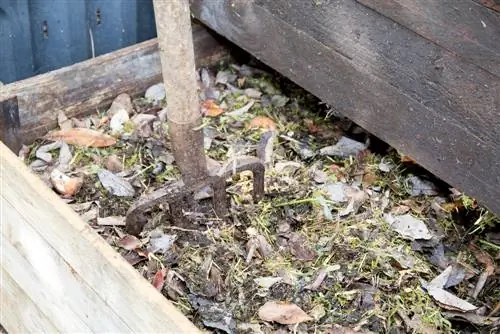
How do I care for the compost properly?
For proper compost care, mix dry and wet waste, pay attention to ventilation and moisture, remove harmful materials and, if necessary, use rock dust and mature compost. Occasional moving can speed up the rotting process.
How to care for the compost properly
The be-all and end-all of compost care is to fill it correctly. Mix dry and wet waste and never add too much of one type of compost at once.
If the compost rots, molds or attracts a lot of flies and pests, you have thrown things into the compost that don't belong there.
Dog poop, meat scraps and cooked food scraps are not allowed to be composted. Caution is also advised when dealing with ash and large amounts of lawn clippings and leaves.
Compost must not become too wet or too dry
Compost in the garden must be well aerated. You also need to avoid letting it dry out or get too wet. The following tasks must therefore be carried out as maintenance measures:
- watering when dry
- cover when it rains
- drainage when too wet
- ventilate occasionally (prick digging fork (€61.00 on Amazon))
- Sprinkle rock dust
- occasionally add mature compost on top.
Turning compost
Compost used to be turned every year. The half-composted remains were dug up and placed in a second composter in the reverse order. This caused the lower layers to rise and the compost to rot more evenly.
By using compost starters, this is no longer necessarily common practice today. Nevertheless, it can be worthwhile to move the compost heap from time to time and thereby loosen it.
Fertilize compost with lime?
Fertilizing the compost with lime is often recommended, but it only makes sense if the humus would otherwise become too acidic. This happens when large amounts of leaves and grass clippings are composted at once.
When is compost ripe?
The compost is ripe when it has a loose, crumbly consistency. Depending on the material and composter, this can take between six months and two years.
Tip
In professional composting plants, temperatures reach up to 70 degrees. Domestic compost stays significantly cooler. If the compost is to be used as growing soil, you should steam it first.

